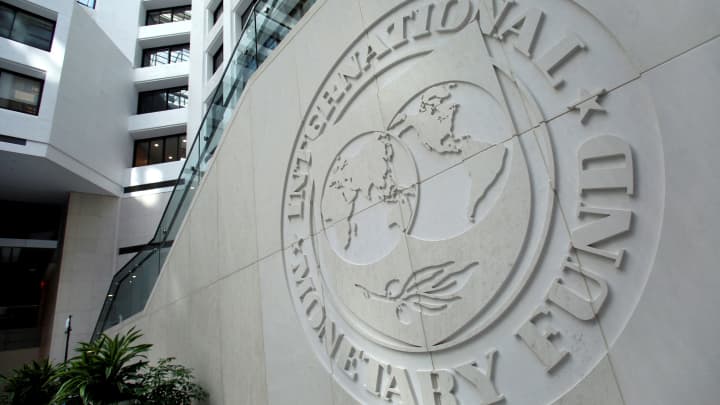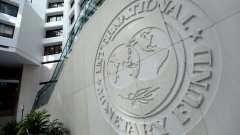
BEIJING — The International Monetary Fund on Tuesday raised its China growth forecast to 5.4% for 2023, while warning that real estate struggles remain .
The IMF cited better-than-expected third-quarter growth and Beijing's recent policy announcements.
However, the IMF still expects growth to slow next year to 4.6% "amid continuing weakness in the property market and subdued external demand."
When it comes to real estate, "the pressure remains," the IMF's First Deputy Managing Director, Gita Gopinath, told CNBC in an exclusive interview Tuesday.
"There remains a lot of stress in the market. There remains weakness in the market," she said. "This is not going to be over with quickly. It's going to take some more time to transition back to a more sustainable size."
Real estate and related sectors have accounted for more than a quarter of China's economy. Some analysts have said it needs to contract — potentially by .
Beijing started cracking down on developers' high reliance on debt for growth in 2020, but have recently eased some measures.
One of the outstanding issues is that developers, struggling to obtain financing, have delayed the completion of apartments and prompted last year. Homes in China are typically sold before they are built.
"Some progress is being made, but a lot more is needed," Gopinath told CNBC.
She said the central government can play a big role in directly providing funding. "We think that will help with boosting household confidence."
"But we also think it's important to have a quick exit of nonviable property developers," she said. "Both of those are going to be quite important. In addition to letting housing prices adjust more flexibly in getting a smoother transition."
In October, the IMF had to 5% this year and 4.2% next year.
Gopinath said she didn't expect a major impact from the IMF's China forecast upgrade to commodity prices.
"What will have a much bigger effect is if China is able to raise its medium term growth forecast from currently what it is at 3.5%, if it can go up to a significantly higher number, which it can if it does the right reforms."
China's overall economic growth has slowed as the country deals with high levels of debt and other structural issues. Beijing has set a 2023 GDP target of around 5%, but has increasingly focused on what it calls "high quality growth."
"I heard this from several authorities that they're not just interested in the headline number," Gopinath told CNBC. "They want the growth to be of high quality, for it to be sustainable, for it to be inclusive, and they are working on multiple fronts here."
A readout said Gopinath met with People's Bank of China Governor Pan Gongsheng, China Securities Regulatory Commission (CSRC) Chairman Yi Huiman, National Bureau of Statistics Commissioner Kang Yi, Vice Minister of Commerce Wang Shouwen, Vice Minister of Finance Liao Min and EXIM Chairman Wu Fulin.
Gopinath said she understands high quality growth to include the green economy, as well as moving away from an investment-driven growth model to one driven by consumption.
Strengthening the would encourage households to spend instead of save, she said.
"Financial stability risks are elevated and still rising, as financial institutions have lower capital buffers and growing asset quality risks," Gopinath said in a .
She and other IMF representatives visited China from Oct. 26 to Nov. 7.
China reported , beating expectations and bolstering forecasts for full-year growth of around 5% or more.
Policymakers still took steps in the last few weeks to announce further support for the struggling real estate sector and local governments. Beijing also made the rare decision to
"The authorities' goal to engineer the needed adjustment in the property market is welcome," Gopinath, said in the statement. "The challenge is to minimize the economic costs and contain risks to the macrofinancial stability."
"Importantly, the recently concluded announced medium-term priorities, with a welcome focus on risks from the property sector, local government debt, and small and medium banks," she said.



